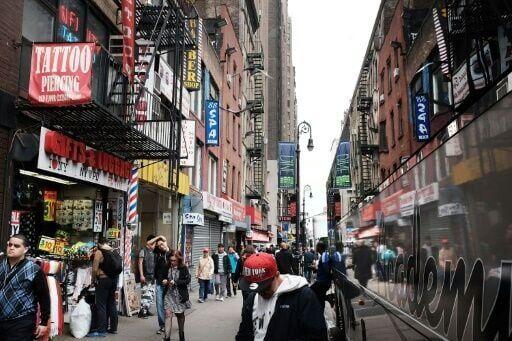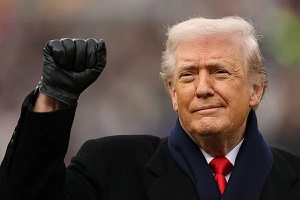Stock markets mostly rise as US wholesale inflation slows

AFP
LONDON — Global stocks mostly rose on Tuesday as attention turned to economic data and its impact on interest rates.
The week's main focus is expected to be US consumer inflation figures on Wednesday, but investors got reassuring wholesale price data on Tuesday.
The producer price index (PPI) rose by 0.1 per cent in July, down slightly from a 0.2 rise in June, the US Labor Department said in a statement.
This was slightly cooler than the median forecast of economists surveyed by Dow Jones Newswires and The Wall Street Journal.
Core PPI that excludes volatile food and energy prices was flat.
On an annual basis, PPI came in at 2.2 percent, down sharply from a revised 2.7 per cent rise a month earlier.
"The key takeaway from the report is the disinflation trend in total and core PPI, as that is moving in a necessary direction to drive a rate cut by the Fed," said Briefing.com analyst Patrick O'Hare.
While the mood on trading floors has calmed since last week's volatility, investors remained cagey before US consumer price figures that could influence the Federal Reserve's monetary policy decision-making.
Observers warned that the inflation readings could cause big market moves in either direction, with a weaker-than-expected print adding to worries about the world's biggest economy, while a strong reading could dent rate-cut bets.
"One of the major risks is the timing and magnitude of the Fed's rate cuts," said ACY Securities' Luca Santos.
"If the Fed delays easing monetary policy, the US economy could risk entering a deeper slowdown, leading to a potential recession.
"Conversely, if the Fed cuts rates too aggressively, it might reignite inflationary pressures or create financial market instability. Balancing these risks will be crucial for maintaining economic stability," Santos added.
Tokyo surged in Asian trading, with traders catching up with Monday's gains elsewhere after a long holiday weekend in Japan.
London gave up early gains won after data showed Britain's unemployment rate had unexpectedly dropped in the second quarter and wage growth slowed to the lowest level in nearly two years.
But it picked up after the US wholesale inflation data, as did Frankfurt.
German investor confidence worsened more than expected in August, a survey showed Tuesday, as a hoped-for recovery in Europe's largest but struggling economy remains out of reach.
The ZEW institute's closely-watched economic expectations index fell to 19.2 points, a steep drop of 22.6 points from a month earlier.
Shares in Starbucks jumped 19 per cent at the start of trading after the coffee shop chain announced that Chipotle chief executive Brian Niccol would take over as chairman and CEO next month.
The leadership shifts come as Starbucks pushes to turn around its business, while contending with broad-based sales declines in its most recent financial results.
Chipotle shares slumped 9.5 per cent.
Crude futures dropped but remained well up over the week owing also to an escalation of tensions in the Middle East.
The White House warned that a "significant set of attacks" by Iran and its allies against Israel was possible as soon as this week after top leaders of Hizbollah and Hamas were assassinated in late July.
Latest News
-
 Trump vows revenge after troops in Syria killed in alleged IS ambush
Trump vows revenge after troops in Syria killed in alleged IS ambush
-
 Gunmen kill 11 at Jewish festival on Australia's Bondi Beach
Gunmen kill 11 at Jewish festival on Australia's Bondi Beach
-
 Hamas marks 38th anniversary, rejects all forms of guardianship over Palestinians
Hamas marks 38th anniversary, rejects all forms of guardianship over Palestinians
-
 Erdogan warns Black Sea should not be 'area of confrontation' after strikes
Erdogan warns Black Sea should not be 'area of confrontation' after strikes
-
 Indonesia flood death toll passes 1,000 as authorities ramp up aid
Indonesia flood death toll passes 1,000 as authorities ramp up aid